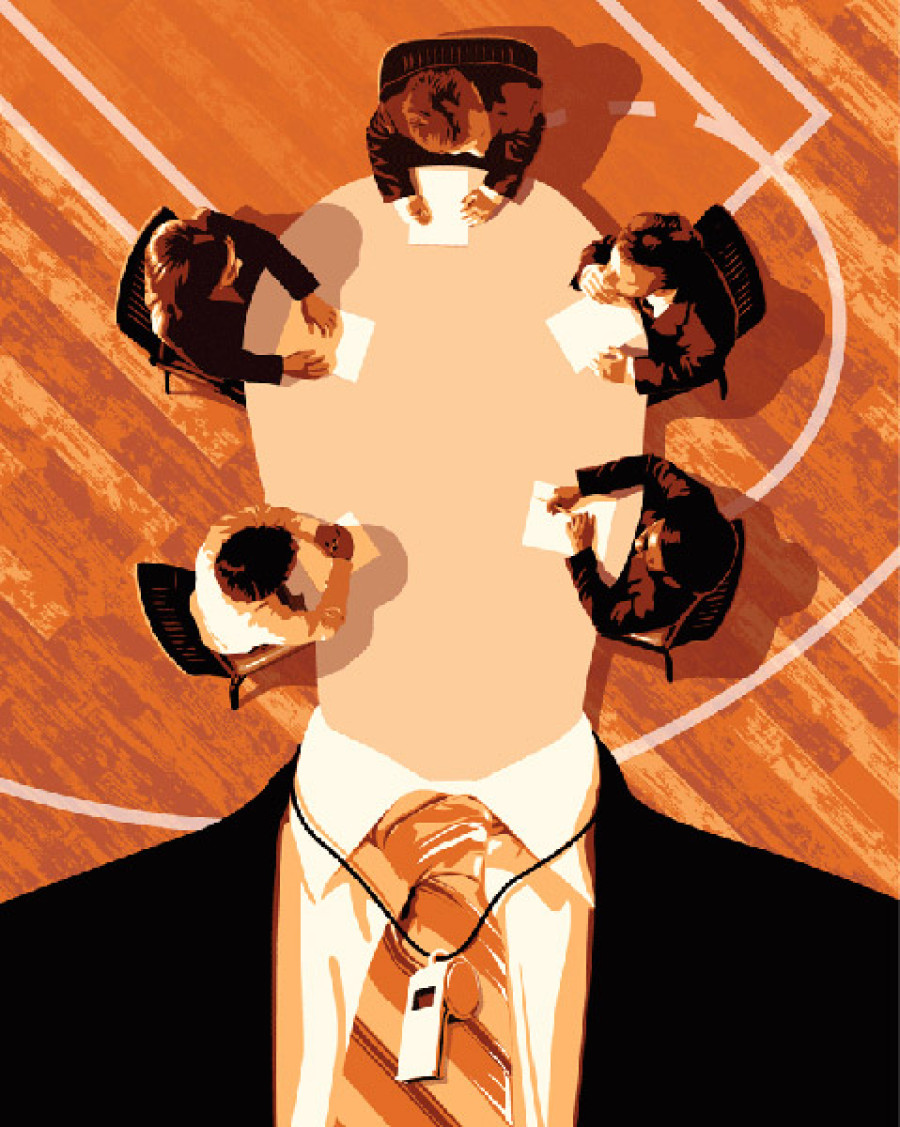Opinion
Not just a game
More discussions and better comprehension of the impact of sports on development are needed
Simone Galimberti
While watching a badminton match or a cricket game, only a few of us might think of the transformative impact that sports can have on people’s life. Rooting viscerally for a team is something that can bring people together, helping for example a youth to find new friends. Most importantly, this passion can push people to practice and pursue sports.
Unfortunately, in Nepal a very small fraction of youths are practicing sports. While many follow sports, only a few of them can ‘talk the walk’ by not only watching the English Premier League games at night but also by actively kicking the ball on the ground. This is a pity because practicing sports can increase your life span, ensuring a healthy way of living.
There is certainly an urgent need to launch a national campaign to promote sports at the school level starting from kindergarten up to the higher secondary education. The recently established National Youth Council could partner with the Nepal Sports Council and the Ministry of Education to start a campaign for children and students to actively embrace sports.
Yet, if this campaign were only to promote the positive impact of sports in the future generations of this country, we would miss a very important point.
Diplomacy through sports
Yesterday, April 6, was designated by the UN General Assembly as the International Day of Sports for Development and Peace. The United Nations did not consider sports just a public health tool to improve the living conditions of millions of persons around the world. The focus is instead on looking at sports through a much bigger lens, with a new perspective that can bring peace and achieve sustainable development.
Indeed the Declaration of the 2030 Agenda for Sustainable Development, the bedrock of the recently launched Sustainable Development Goals, assigns a special role to sport, acknowledging that “sport is also an important enabler of sustainable development, and recognising “the special contributions that sports can make to the empowerment of women and of young people, communities and individuals as well as health, education and social inclusion objectives.”
Only a few countries have fully understood the role that sports can play for development and peace. In terms of best practices, Australia, the outdoor nation par excellence, has a comprehensive ‘sport for development’ strategy. Very recently, the Badminton World Federation, with the support of Australian government, launched a new initiative to promote sports among schoolchildren.
On Monday, Malissa Tapper, an Australian table tennis player, was involved in an exhibition match in Basantapur Durbar Square where she played against Digam Singh Chemjong, an avid sport player and one of the leaders of the wheelchair basketball movement in the country.
The US also has a strong tradition of public diplomacy through sports. Currently, Lorrie Fair and Tracy Ducar, two former professional football players who for many years were part of the national team, are currently in Nepal to share their knowledge and expertise by holding clinics and other awareness programmes at different schools. It is interesting that they are here in their capacity as US Sports Envoys, a testimony of how much the US is investing in sports for positive change around the world.
The Center for Sport, Peace, and Society based at the University of Tennessee in the US has become a hub of worldwide excellence to research on and expand the positive links between sports, development and peace.
Even Japan has launched Sport4Tomorrow as a cornerstone of its successful bid to host the Tokyo Olympic Games in 2020. A few months ago, a delegation of Sport4Tomorrow was in Nepal not only to conduct sport clinics in different disciplines but also to explore the feasibility of launching new ideas and initiatives to create new innovative people-to-people links between Japan and Nepal based on sports.
Sports for everyone
There is an increasing number of organisations in Nepal that are working very hard to promote inclusive development through sports. Among them, organisations run by the disabled play a big role. In the field of inclusive sports, the country can be a real pioneer in developing a new strategic framework that can be seen as a best practice not only in South Asia but also within the Asia-Pacific region.
Last Saturday, Prem BK and Lali Tamang, both wheelchair basketball players, broke all the records in a 5km wheelchair run organised by Nepal Healthcare Equipment Development Foundation.
Within this month of April, the first ever Wheelchair Basketball League is being organised. A first attempt to promote and scale up disability sports in the country, it is expected to offer a powerful platform to change people’s perspective towards disabilities. We hope that such events will help policymakers, activists and politicians to invest more in sports for development and peace. The National Planning Commission should show innovation and commitment to introduce new practices like sports for peace and development that will lay the foundation for the next periodic plan.
More discussions and a better comprehension of the impact of sports on development are needed.
Galimberti is Co-Founder of ENGAGE and Editor of Sharing4Good




 9.6°C Kathmandu
9.6°C Kathmandu










